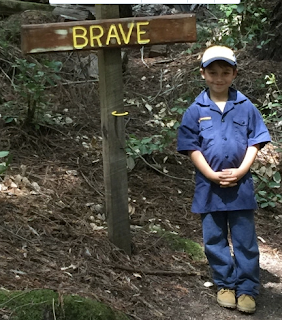The Push for Authentic SEL Experiences
Social Emotional Learning (SEL) is being touted as a panacea for the emergence of emotional and behavioral issues that are abundant in schools across the country. This push to develop students’ awareness of themselves, their goals and emotions, as well as the feelings of others, often comes prepackaged in a curriculum box with a range of pictures, videos and puppets for the teacher to connect.
But after spending a weekend in the woods with a group of squirrelly first and second graders who are a “pack” in the Boy’s Scouts of America it made me realizing developing social emotional skills must be an authentic experience that emerges from free play, exploration, and group norms. This sentiment is echoed in research about how children learn SEL best, with too much emphasis on academic and direct instruction resulting in an upsurge of deviant behavior in the adult years. As we drove to the campsite located at Pico Blanco in the mountains of Big Sur, words like “courteous”, “kind”, and “brave” were posted along the road to our campsite. This began the conversation about what it means to be a boy scout and how these values can be demonstrated in our choices and actions toward others.
These skills should not be developed in isolation, that is learning how to control your impulses (self-management) is connected to your awareness of yourself and limitations (self-awareness) and how your choices impacts yourself and others (responsible decision making). To think that a scripted curriculum with “typical” scenarios could promote a shift in students thinking in a way that alters the core of who they are is a big stretch for me. Rather this shift seems much more apparent in the lives of children who experience novel events outside of the classroom, in a connected community with shared values and common beliefs.
The Boy’s Scout of America is a perfect exemplar for those who are looking to connect to youth in a way that is meaningful, engaging, and rooted in core principals and values that are socially connected and impacts a child’s self-esteem and efficacy to thrive in a ever-changing and complex world.
When designing instruction to support students social emotional learning consider authentic experiences that will alter the way students think and perceive the world, not just what they are able to recite back to you and record in a fill-in-the blank worksheet.
Real learning is disruptive and creates a state of disequilibrium. Consider planting a school garden and selling proceeds to support families in need, or spend the day at a elderly home/food shelter or children’s hospital where kids can demonstrate kindness and empathy toward others. Reading about such core beliefs is an empty experience that may reinforce reading skills but fail to awaken the self.
How do you create authentic learning experiences in your class to teach Social-Emotional skills?





